An emergency button installed at every Prague metro station can stop an oncoming train immediately if someone falls onto the tracks.
However, many passengers are unaware of its existence, leading to tragic incidents.
Last week, a blind man tragically lost his life at Křižíkova station when he fell onto the tracks and the train could not be stopped in time.
The police are now urging the public to familiarize themselves with these emergency buttons, which are a crucial safety feature.
Eva Kropáčová, a spokesperson for the police, emphasized the importance of knowing about them: “Right now, our goal is to raise awareness about the emergency button so that in case of an accident, people can act quickly and prevent a tragedy.”
The emergency buttons are located on the platform near the tracks and are usually positioned at both ends of the platform, either mounted on walls or poles.
They are protected by glass that needs to be broken to activate the system. When pressed, the button sends a signal to the train’s safety system, either stopping the train or preventing it from starting.
In the recent Křižíkova incident, bystanders noticed the man falling but did not realize there was a faster way to stop the train than calling the emergency hotline.
“Unfortunately, none of the witnesses seemed to know about the emergency button, which could have stopped the train immediately,” Kropáčová said.
A similar situation occurred this Thursday at Jiřího z Poděbrad station when a foreign passenger fell onto the tracks. Fortunately, he managed to climb back up onto the platform with the help of other passengers.
He was later found to be under the influence of alcohol, with a blood alcohol level of four milliliters. This wasn’t an isolated case – two years ago, a similar incident happened involving another intoxicated individual.
In both cases, no one pressed the emergency button, which should be the first step when someone falls onto the tracks, according to Kropáčová.
The annual Night of Castles and Chateaux takes place on August 24.
Most Czech castles and châteaux turn into magical places full of stories and experiences. These aristocratic residences will teem with life during non-traditional times (even at midnight) and the non-traditional program will make sure visitors want to go back.
The program includes night tours, tours with lanterns and candles, theatrical performances, concerts, shows and other amusements.
You can try contemporary fare in the castle kitchens, have a look in places where visitors usually never get to see, or you can walk around the château with a flashlight and hear stories that sent chills down the spine during previous generations.
The Gardens below Prague Castle will be lit up with torches, so you can experience its unique, romantic atmosphere. You can also look forward to a historical fencing show with expert commentary; and to guided tours of these beautiful Baroque gardens.
Castle across all Czech regions, and attractions in Prague Various castles such as Litice Castle (in Pardubice) and Trosky Castle (Liberec) will also take part in Castle Night.
Visitors to Trosky Castle can enjoy the melodies of the country band Nabitý baterky, while immersing themselves in local castle legends.
Karlštejn Castle ceremonially reopens after three-year reconstruction
Visitors to Hluboká Castle near České Budějovice can explore the history of ice cream and sorbet production, learning about their preparation and presentation according to historical recipes.
The Night of Castles and Chateaux is an annual celebration organized by the National Heritage Institute starting in 2010.
Its goal is to present our heritage sites in a new light, at an unusual time of day and with special events.
Would you like us to write about your business? Find out more
The Czech Health Ministry is drafting an amendment to a decree that could significantly impact the e-cigarette industry.
The proposed changes would prohibit all flavours except tobacco, as well as sweeteners and other additives commonly used in e-cigarette liquids.
These regulations would apply solely to vaping products, leaving traditional cigarettes and other nicotine alternatives unaffected.
Industry representatives have responded with alarm, warning that this move could lead to the collapse of the entire sector.
“We are stunned. Without any prior consultation, the ministry is essentially planning to ban e-cigarettes in the Czech Republic,” said Robert Hrdlička, chairman of the Chamber of Electronic Vaping (KEVAP).
He argued that without the now-banned ingredients, tobacco-flavoured e-liquids would be unsellable. “The ministry is imposing an amateurish and uninformed view on what tobacco should taste like,” Hrdlička added.
In addition, a new excise tax on e-cigarettes is set to take effect in September, with further increases planned in the coming years. “The government’s approach is entirely illogical. First, they encourage e-cigarettes as a tool to reduce smoking, and now they’re essentially banning them,” Hrdlička criticized.
Experts in the e-cigarette field warn that such a ban could push users back to conventional cigarettes or encourage smuggling of e-liquids from abroad.
Currently, around 11% of the Czech population, approximately one million people, use e-cigarettes.
“E-cigarettes are among the least risky alternatives to smoking, as confirmed by numerous studies and experts. It is completely irrational for the state to target one category while ignoring the rest,” added Hrdlička.
Instead of outright prohibition, KEVAP suggests that the government focus on restricting access to e-cigarettes for minors, perhaps through licensed sales channels that would allow for better market oversight.
Would you like us to write about your business? Find out more
More than half of Prague’s 1,189 buses and just 127 out of 771 trams currently have air conditioning.
Ongoing fleet upgrades and new purchases are gradually increasing these numbers, according to the latest updates from the Prague Public Transit Company (DPP).
Prague Integrated Transport (PID) guidelines require air conditioning to be activated when outdoor temperatures reach 22 degrees Celsius.
At present, around 60% of the city’s buses are equipped with air conditioning. DPP purchases 100 to 120 new buses annually, which steadily increases the proportion of climate-controlled vehicles.
Among trams, only some of the Škoda 15T ForCity models are air-conditioned. Although a previous city council approved the installation of air conditioning in the remaining 124 trams of this type, the plan was later scrapped due to technical and legal hurdles.
Instead, DPP signed a framework agreement for 200 Škoda ForCity Plus 52T trams, valued at CZK 16.6 billion. These new trams will come equipped with air conditioning, but so far, DPP has committed to purchasing just 40 of them.
How to Identify Air-Conditioned Trams in Prague
All Škoda 15T4 trams come with onboard climate control. These trams are easily recognized by the yellow plastic inserts in the front section.
Another way to find out in advance when a tram or bus with air conditioning will arrive at a stop is by using the official online map of the Prague public transportation system, which shows the real-time location of all operating trams and buses.
Simply enter the desired route in the corresponding field, and the map will display all the buses or trams operating on that route. Then, click on the one that is closest to your desired stop and check if there is a “snowflake” icon in its description.
Would you like us to write about your business? Find out more
The Czech Hydrometeorological Institute (ČHMÚ) has issued a warning for unusually high mosquito activity this weekend.
The alert is valid nationwide and advises residents to be prepared for an increased presence of mosquitoes.
“In certain parts of the Czech Republic, current weather conditions favor intense mosquito activity, which could be particularly severe. Mosquitoes thrive in warm, still air with high humidity,” the agency announced on the social platform X.
The recent heavy rainfall has also contributed to the surge in mosquito numbers by creating ideal breeding grounds for larvae. The institute explained, “Not only do favorable weather conditions play a role, but population dynamics— which differ among mosquito species— also influence their prevalence.”
The peak of mosquito activity is expected on Saturday and Sunday, with signs of increased activity already noticeable by Friday afternoon, particularly in the Hradec Králové and Liberec regions.
Maps shared by the Czech Hydrometeorological Institute show that few areas across the country will be spared from these persistent pests. However, by Sunday, some relief is anticipated, especially in regions like Vysočina, Plzeň, Karlovy Vary, and Liberec.
Mosquito development is largely driven by weather conditions, particularly temperature and humidity. Warmer temperatures shorten the time it takes for female mosquitoes to feed on blood, a necessary step for egg production, as the institute has highlighted.
Climate change also plays a significant role in shifting mosquito populations. “Rising temperatures are pushing thermophilic species further north from their traditional southern habitats. Continued warming in the Czech Republic could lead to the introduction and establishment of new mosquito species, which may, in turn, affect the local incidence of mosquito-borne diseases,” the ČHMÚ warned.
Would you like us to write about your business? Find out more
Delivery service Foodora has expanded its offerings to include over-the-counter medicines, now available for home delivery in partnership with Dr. Max pharmacies.
This service is currently active in Prague and Brno, with plans to extend it to Ostrava soon.
This service is a response to the increasing demand for fast delivery, especially during times when health concerns are a priority.
“We aim to provide everything our users might need throughout the day, including essential medicines,” said Adam Kolesa, CEO of Foodora. He emphasized that working with Dr. Max is a logical step in making over-the-counter medicines more accessible.
High Demand for Cold and Pain Remedies
The service was initially tested in central Prague, where it received a strong response from customers. The product range includes not only medicines but also supplements and toiletries. The most popular items have been flu and cold treatments, such as nasal sprays and hot drinks like Coldrex, Paralen, and Strepsils.
Pain relievers like Ibalgin have also been in high demand. Within just a few months, Foodora has sold over 177 different types of medicines, showing the service’s popularity.
A Growing Trend in Quick Medicine Delivery
Similar services have been gaining traction internationally. In Germany, a nationwide service launched in January 2021 delivers over-the-counter medicines within minutes. This trend highlights the growing demand for fast and convenient medicine delivery, not only in the Czech Republic but also worldwide.
The collaboration between Foodora and Dr. Max also reflects how e-commerce continues to evolve, adapting to modern life where time is a valuable resource.
Would you like us to write about your business? Find out more
The village of Soutice sits on the border of the Kutná Hora and Benešov districts. A road leading from the D1 motorway to Zruč nad Sázavou runs through the edge of the village, adding to the appeal of the local castle.
This protected cultural monument, with a total land area of 50,133 square meters, is now on the market.
Built in the late 17th century on the site of a former fortress, the Soutice chateau has been a cultural monument since the late 1950s. Conservationists describe the well-preserved structure as a valuable example of an aristocratic country residence.
During a building history survey, Gothic masonry was found within the walls of the current structure, placing the castle on the list of endangered monuments.
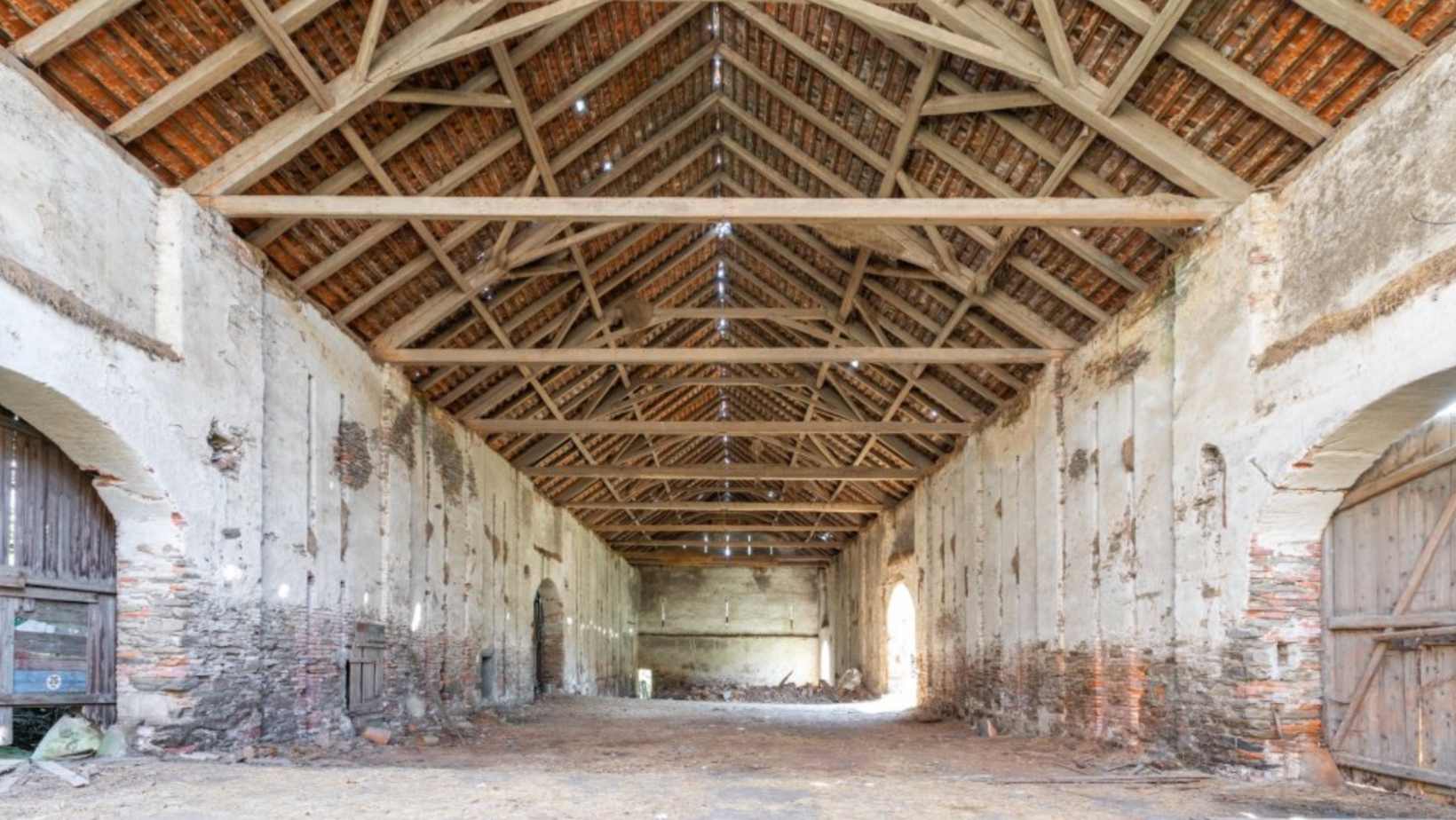
The castle suffered significant damage from a major fire in 1895 and underwent its last major restoration in the early 20th century. Like many historical sites, it was negatively impacted by the regime and poorly planned renovations in the years that followed.
Before World War II, the castle was a hub of cultural activity. In the post-war years, it served as a school and later as an archive.
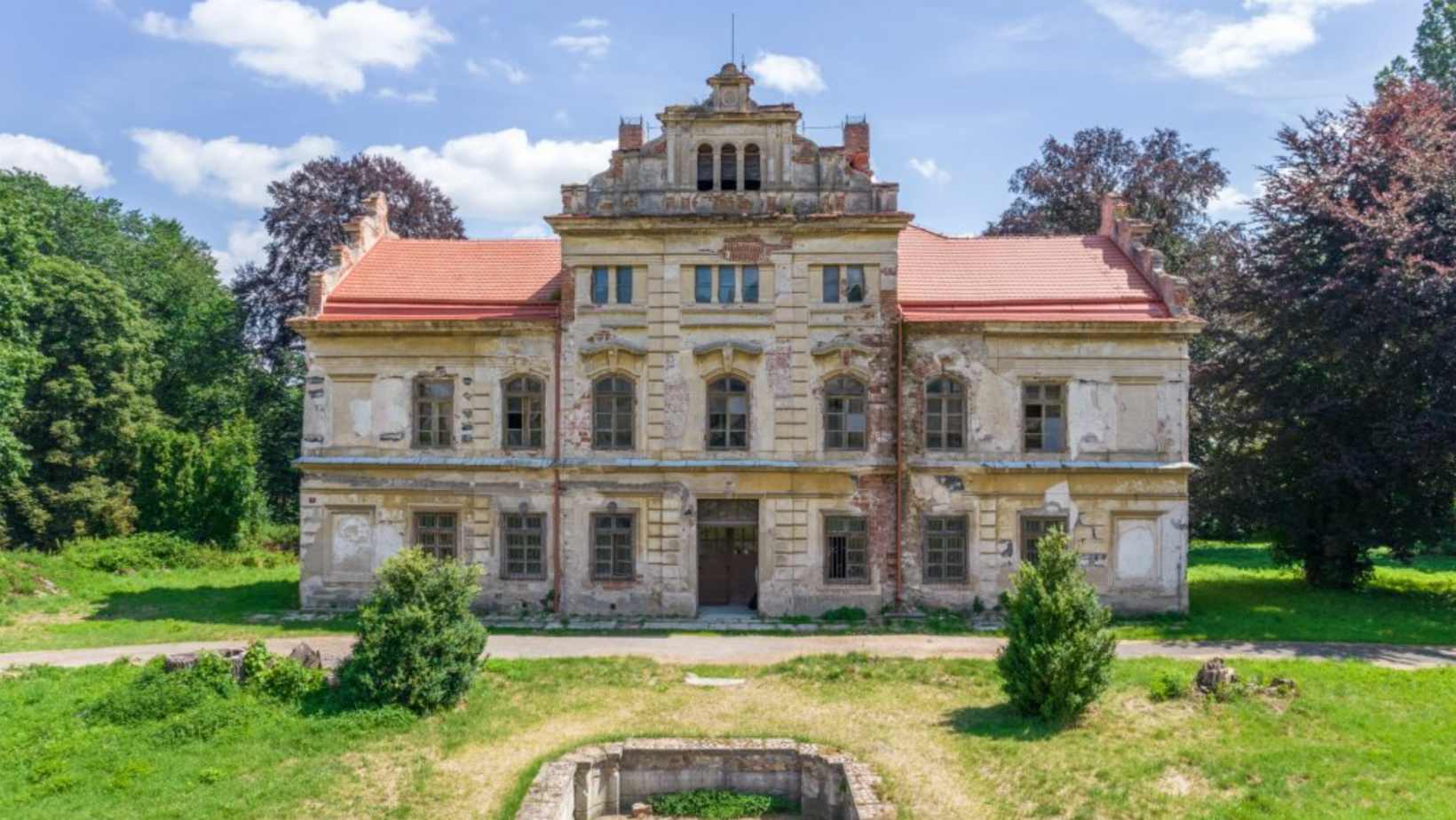
A Surprising Price
The property for sale includes the castle itself, a farmyard, a former distillery, and a castle park, all totaling over 50,000 square meters. The asking price for this entire estate is CZK 19,490,000—an amount that might surprise those familiar with the costs of real estate in the capital.
While the roof trusses were repaired and a new roof installed in 2017, the rest of the property is in need of a full renovation. Fortunately, the site has access to all municipal utilities, making the restoration process more feasible for the future owner.
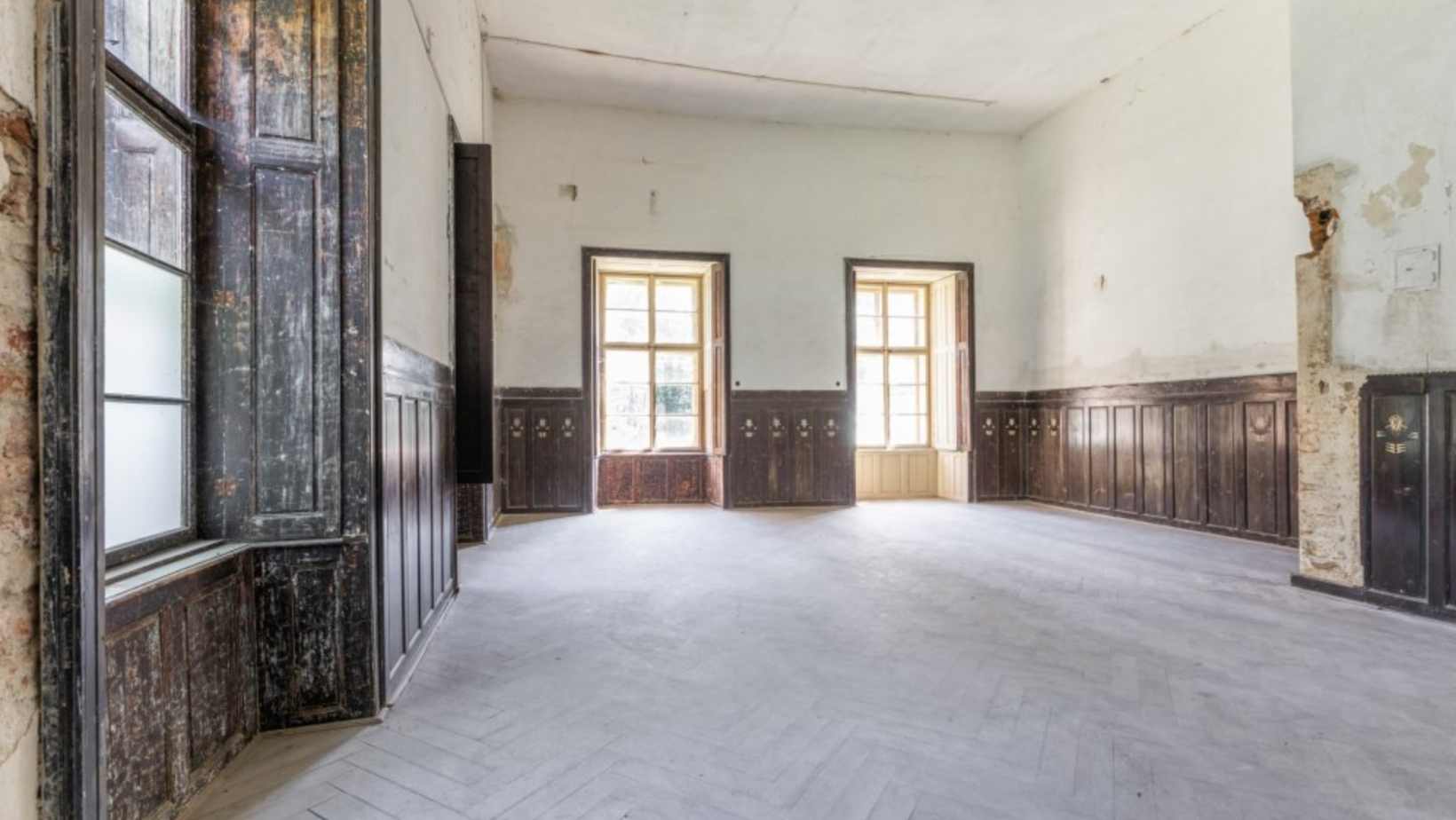
Would you like us to write about your business? Find out more
On 29 June, the Regional Organiser of Prague Integrated Transport (ROPID) launched a new rule regarding the operation of public buses in the Czech capital.
The buses do not stop at bus stops anymore unless specifically requested to do so either by onboard passengers or by people waiting at the stop.
More specifically, onboard passengers need to press a stop request button before the bus gets to the actual stop – that itself is an already common and widely used practice worldwide.
Regarding people waiting at bus stops, the operator has stated that all they have to do is stand at the bus stop and face the incoming vehicle in a way that the driver has to see them. Previously, wannabe passengers had to raise their hands, but this is not required anymore.
This may seem fairly straightforward, however, a month and a half later, the changes have left many public transport users confused, especially the elderly.
Some of them told Metro.cz they didn’t understand why stops near hospitals are request stops, when they almost always have people – often elderly and with limited mobility – needing to use them.
Furthermore, some older bus shelters are opaque (most new bus stops are transparent) so a driver wouldn’t see the person unless they step out of the shelter.
According to ROPID, the implemented changes are only logical since 70% of the city’s bus stops had already been ‘request only’. The implemented changes aim to improve efficiency, quicken journey times, and reduce fuel costs – thus they have a sustainability mindset at their core.
“This is a trend that has already been established in many places for many years. Unfortunately, there were different variants of the regimes of individual stops. We will therefore unify the entire system in the Central Bohemian Region and in Prague,” explains Petr Borecký, councillor of the Central Bohemian Region for public transport.
Would you like us to write about your business? Find out more
Running in European cities is becoming increasingly popular, with a notable rise in interest over the past year.
According to weloveholidays, a travel research firm, Prague has secured a spot among the top European cities for runners.
Searches for “European marathons 2024” have surged by over 550% in the last 12 months, indicating the growing interest in running.
The study analyzed the 25 largest cities in Europe based on their suitability for running. It considered six key factors: the number of running routes, average temperature, altitude range, the number of running events, available activities, and green spaces.
The research crowned Stockholm as the best European city for runners. Experts highlighted the Swedish capital for its extensive urban space, offering the most running routes in all of Europe.
Whether runners prefer scenic routes by the water, hilly city runs, or jogging in one of the city’s 31 parks, Stockholm has it covered. Additionally, Stockholm was noted as the coldest city on the list, with an average temperature of 7.3°C.
Paris came in second, boasting 181 parks despite having only 59 official running trails. Dublin followed in third place, with over 190 trails and an average temperature of 9.4°C.
Prague Secures Fifth Place
Prague earned a strong fifth place in the ranking, holding its own against cities like Stockholm, Paris, Dublin, and Berlin, which took fourth place.
The research revealed that Prague offers a variety of running opportunities, including 127 routes and 54 parks. The city also has a significant altitude range of 340 meters and an average temperature of 9.8°C, making it an appealing destination for runners of all levels.
Would you like us to write about your business? Find out more
The biggest Indian Cultural festival in the Czech Republic is back. This year’s Experience India event will be held on September 4th, 2024, outside Andel (Metro), from 8 am to 8 pm.
A cultural festival for everybody who wants to travel to India by walking into the heart of Prague.
Get a glimpse into the secrets of Indian cuisine, taste selected dishes from different corners of India: delicate Pálak Panír or Shahi Panír, balanced Chicken Tikka Masala, spicy Tandoori dishes, and other gourmet specialties – a very rich selection of both meat and vegetarian dishes.
You can also have real Indian tea of the highest quality or excellent coffee from Indian plantations.
Experience India it’s not only about food: you can try wearing a sari and turban, or get a bindi on your forehead or mehndi (henna) on your hand.
Try Ayurveda products from certified manufacturers. Counseling – yoga, acupressure, Ayurveda and others will also be represented at the festival. You can buy Indian fashion, designer interior decorations or furniture made of mahogany and other rare materials.
Alongside the performances, a marketplace featuring handcrafted goods, traditional clothing, and jewelry from India will allow visitors to explore and purchase unique items.
A rich cultural accompanying program throughout the day – don’t miss, for example, charming dances from all corners of India and traditional Indian entertainment.
Experience India is organized by the Indian Community in the Czech Republic (ICCR z.s.). Free entry!

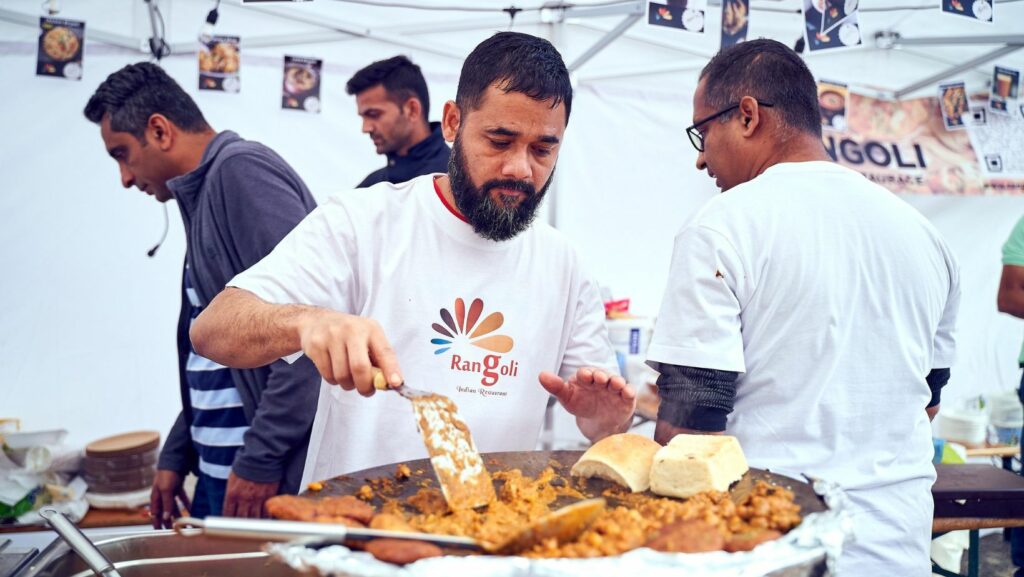
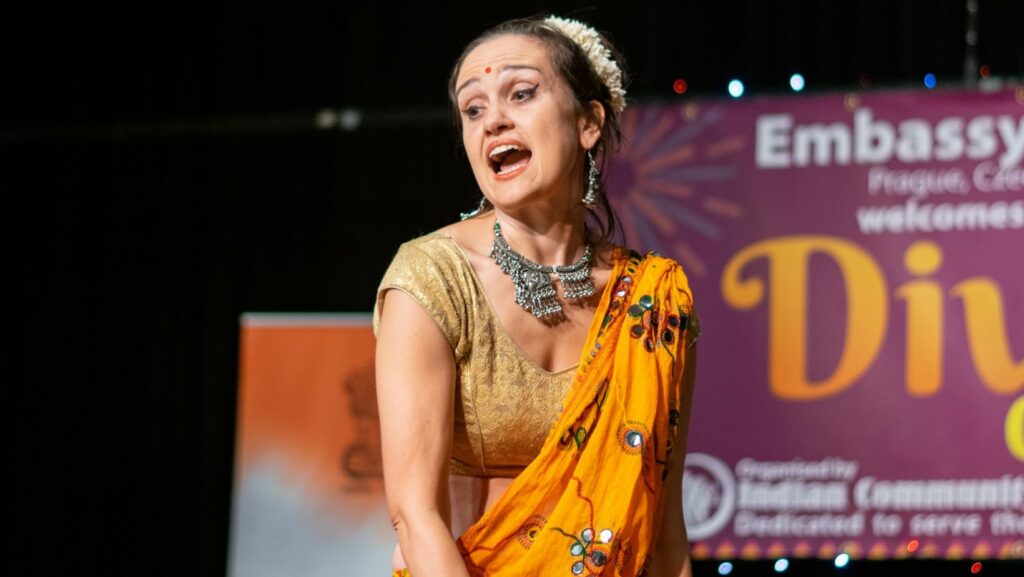
A new campaign running until mid-September aims to educate passengers about harassment on Prague’s public transport.
The campaign, which will be featured in over 150 locations including billboards, public transport stops, and on buses and trams, highlights how to identify and respond to harassment.
According to a survey by the Government Office’s Department for Gender Equality, one in three women and one in ten men have experienced harassment while using public transport.
Despite this, a third of witnesses fail to react when they observe such behavior.
“With this campaign, we are conveying three key messages to passengers. First, we are highlighting various forms of harassment, which can include more than just physical contact or verbal comments. Unwanted staring can also be a form of harassment. Second, we aim to normalize the idea of speaking up when something inappropriate occurs, even if it doesn’t directly involve us. Third, we provide an option for people to share their experiences anonymously on our website,” explains Anna Hrábková from Konsent, the campaign’s creator.
View this post on Instagram
The campaign is a collaborative effort between Konsent, the City Hall of Prague, Prague Integrated Transport, the Transport Company of Prague, and the City of Prague.
Konsent, a non-profit organization, has been working to raise awareness about sexual violence since 2016.
Would you like us to write about your business? Find out more
Latvian airline Air Baltic has decided to name 48 of its aircraft after real Baltic cities.
To select these names, the carrier launched an online vote, inviting the public to participate. The competition was straightforward until Czech users noticed the Estonian city of Kunda among the options.
In Czech, the word “kunda” is a vulgar term for female genitalia.
The competition features 232 cities from Latvia, Estonia, and Lithuania. From each country, the 16 cities with the most votes will be chosen. Within a year of finalizing the results, each of the 48 winning names will be used on Airbus A220-300 aircraft.
Voting is open to everyone on a special website, with no registration required. The process will continue until the evening of 22 August.
The airline, perhaps naively or strategically, has kept the voting open not only to the Baltic countries but to the entire world.
In the Czech Republic, internet users quickly seized the opportunity, spreading the word on social media with calls to “participate in the most important vote of your life” and “fulfill your Czech duty.”
So far, the plan appears successful—Kunda leads among Estonian cities by a large margin. The town of Püssi is in second place, likely for similar prank reasons.
The Estonian capital is in third place, trailing the leader by more than two times.

